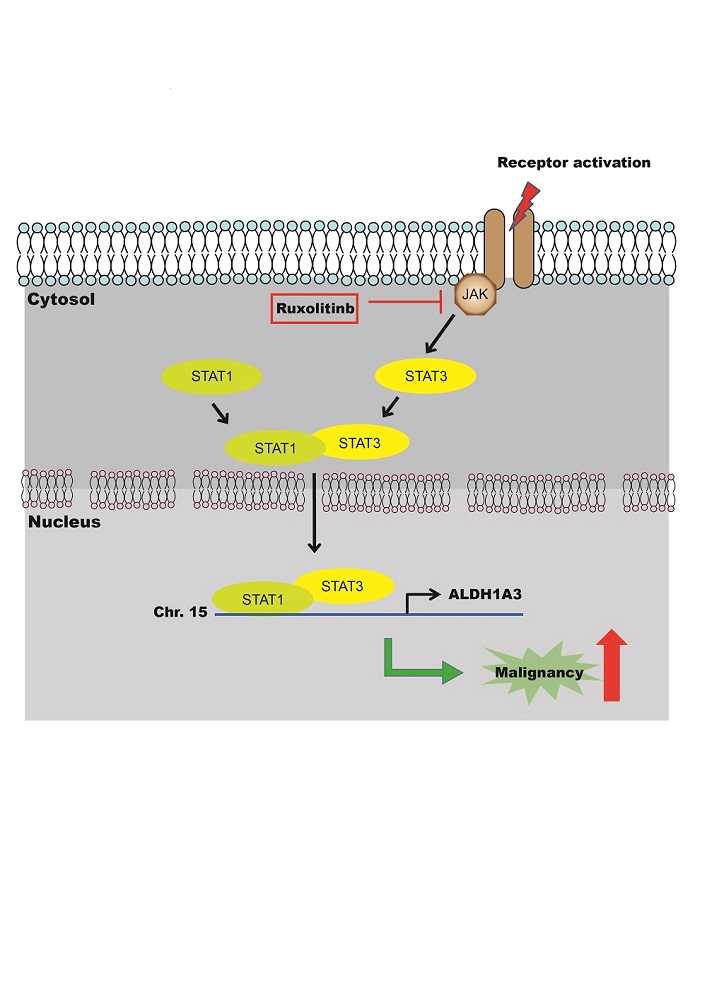Cholangiocarcinoma is the most common primary malignant tumor of the bile duct. The current standard first-line treatment for advanced or metastatic cholangiocarcinoma is gemcitabine and cisplatin. However, few effective treatment choices exist for refractory cholangiocarcinoma, and additional therapeutic drugs are urgently required. Our previous work demonstrated that the ALDH isoform 1A3 plays a vital role in the malignant behavior of cholangiocarcinoma and may serve as a new therapeutic target. In this study, we found a positive correlation between ALDH1A3 protein expression levels and cell migration abilities of three cholangiocarcinoma cell lines, which was verified using ALDH1A3-overexpressing and ALDH1A3-knockdown clones. We also used ALDH1A3-high and ALDH1A3-low populations of cholangiocarcinoma cell lines from the Library of Integrated Network-based Cellular Signatures (LINCS) program and assessed the effects of ruxolitinib, a commercially available JAK2 inhibitor. Ruxolitinib had a higher cytotoxic effect when combined with gemcitabine. Furthermore, the nuclear translocation STAT1 and STAT3 heterodimers were markedly diminished by ruxolitinib treatment, possibly resulting in decreased ALDH1A3 activation. Notably, ruxolitinib alone or combined with gemcitabine led to significantly reduced tumor size and weight. Collectively, our studies suggest that ruxolitinib might suppress the ALDH1A3 activation through the JAK2/STAT1/3 pathway in cholangiocarcinoma, and trials should be undertaken to evaluate its efficacy in clinical therapy.

